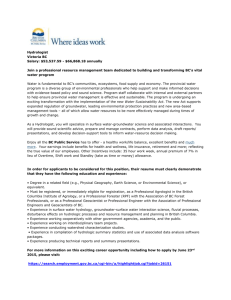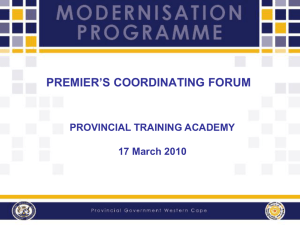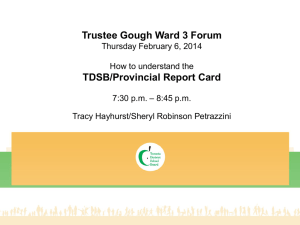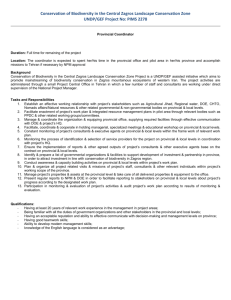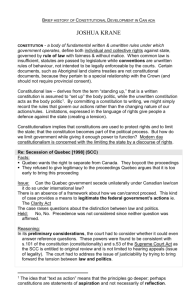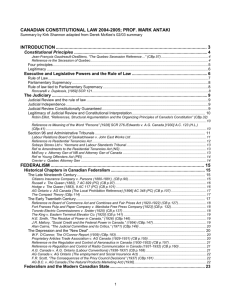COMMUNIQUE February 13,2013 - File Hills Qu`Appelle Tribal
advertisement
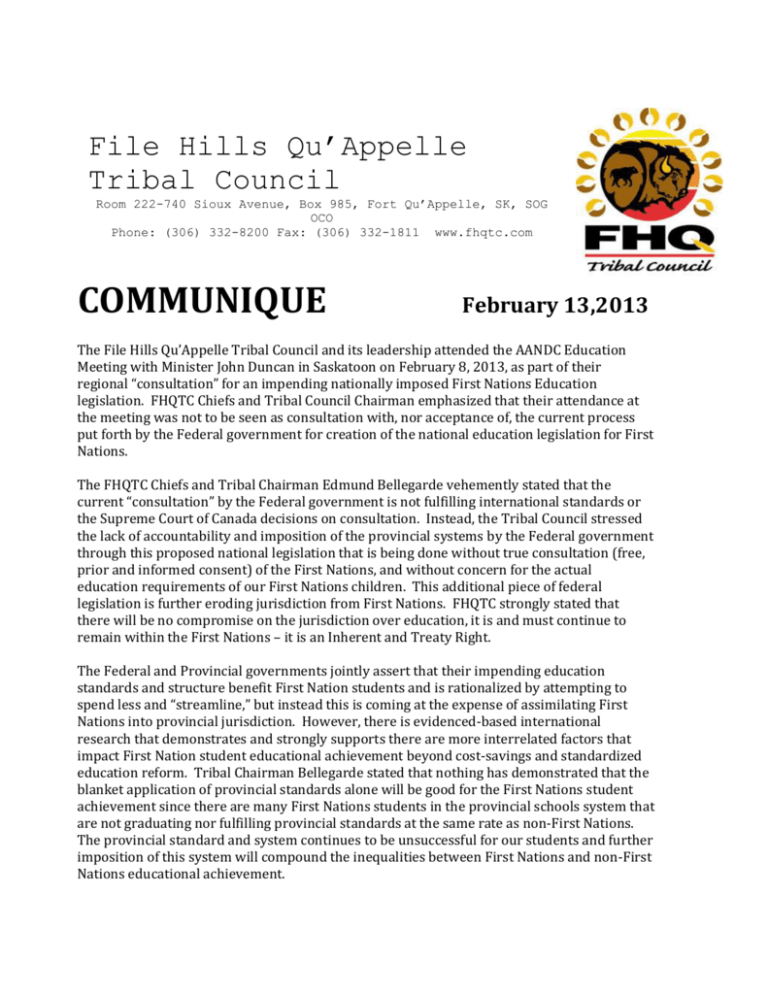
File Hills Qu’Appelle Tribal Council Room 222-740 Sioux Avenue, Box 985, Fort Qu’Appelle, SK, SOG OCO Phone: (306) 332-8200 Fax: (306) 332-1811 www.fhqtc.com COMMUNIQUE February 13,2013 The File Hills Qu’Appelle Tribal Council and its leadership attended the AANDC Education Meeting with Minister John Duncan in Saskatoon on February 8, 2013, as part of their regional “consultation” for an impending nationally imposed First Nations Education legislation. FHQTC Chiefs and Tribal Council Chairman emphasized that their attendance at the meeting was not to be seen as consultation with, nor acceptance of, the current process put forth by the Federal government for creation of the national education legislation for First Nations. The FHQTC Chiefs and Tribal Chairman Edmund Bellegarde vehemently stated that the current “consultation” by the Federal government is not fulfilling international standards or the Supreme Court of Canada decisions on consultation. Instead, the Tribal Council stressed the lack of accountability and imposition of the provincial systems by the Federal government through this proposed national legislation that is being done without true consultation (free, prior and informed consent) of the First Nations, and without concern for the actual education requirements of our First Nations children. This additional piece of federal legislation is further eroding jurisdiction from First Nations. FHQTC strongly stated that there will be no compromise on the jurisdiction over education, it is and must continue to remain within the First Nations – it is an Inherent and Treaty Right. The Federal and Provincial governments jointly assert that their impending education standards and structure benefit First Nation students and is rationalized by attempting to spend less and “streamline,” but instead this is coming at the expense of assimilating First Nations into provincial jurisdiction. However, there is evidenced-based international research that demonstrates and strongly supports there are more interrelated factors that impact First Nation student educational achievement beyond cost-savings and standardized education reform. Tribal Chairman Bellegarde stated that nothing has demonstrated that the blanket application of provincial standards alone will be good for the First Nations student achievement since there are many First Nations students in the provincial schools system that are not graduating nor fulfilling provincial standards at the same rate as non-First Nations. The provincial standard and system continues to be unsuccessful for our students and further imposition of this system will compound the inequalities between First Nations and non-First Nations educational achievement. FHQTC leadership continues to advocate that language and culture must be the foundation to any education for our students. Both for on reserve and off the reserve education. Schools should have cultural and language programs integrated into the curriculum, as recognized in the UN Declaration on the Rights of Indigenous .Peoples at article 14 (3), where it asserts: States shall, in conjunction with indigenous peoples, take effective measures, in order for indigenous individuals, particularly children, including those living outside their communities, to have access, when possible, to an education in their own culture and provided in their own language. Consultation with full participation of First Nations is also required at the planning level before education standards and curriculum are developed and implemented. The regional “consultation” that is occurring by the Federal government is not fulfilling their fiduciary duty to consult. The issue of funding for development and implementation of education that fulfills Inherent and Treaty jurisdiction is not about getting the same funding but instead funding sufficiently and adequately that addresses the problems that are encountered by our First Nations students. First Nation Inherent and Treaty Rights to education, along with control and implementation of it is not for negotiation, but instead must be developed with First Nations as full partners in our children’s’ future. FHQTC has initially recommended the following for the discussion and to start the consultation, assessment and inventory of our requirements for education among the FHQTC First Nations to facilitate the inclusionary development of student achievement and outcomes that have language and culture as our foundation: Standards and creation of legislation without an assessment of the current state and future goals of First Nations will not achieve favourable student outcomes. There is no evidence that shows that the provincial standards produce equal achievement and outcomes of First Nations students. A realistic view is that, in practice, poor student achievement is linked to socio-economic status and housing issues, as well as the marginalization of our youth. These are areas that are linked to First Nations education and must be addressed when looking to gain more positive student outcomes in order to produce a ‘whole’ child. Funding is needed to do an adequate assessment of the First Nations by the First Nations in order to create effective, responsive and holistic education of our children. Core funding, instead of proposal driven funding, should be increased to allow the natural evolution of standards based on First Nations needs and within the First Nations decision-making capacity that includes language and culture as the foundation. The real need is not for predictable and stable funding, but for sufficient and adequate funding, that addresses the needs of First Nations education that includes language and culture, and not just provincial standards. There is a need to enhance existing boards and committee structures of education, including adequate funding.

